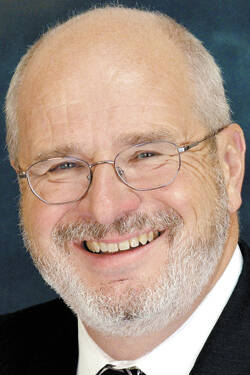
Demagogues and their followers often allow a crowd’s roar to confuse them.
They mistake the noise for actual power.
Real power often works quietly, almost in silence.
Consider the way U.S. Senate Minority Leader Mitch McConnell, R-Kentucky, has dealt with former President Donald Trump.
Democrats and other critics of the Senate minority leader have bashed McConnell’s ongoing quietness, his bland but stolid imperturbability, regarding Trump’s mounting legal troubles. Those critics accuse McConnell of ducking a fight with the former president—of refusing to take a stand against Trump, who now is under indictment and vulnerable.
Those critics are mistaken.
McConnell, who does understand the difference between applause and actual power, doesn’t need to speak.
Because he already has.
After the Senate voted on Trump’s second impeachment, McConnell claimed the floor to talk about why he had voted against convicting the ex-president. Even before that moment, McConnell had done damage to Trump’s prospects by telling his Republican colleagues they were free to vote their consciences on the articles of impeachment.
Seven of them voted to convict Trump, a number well short of that necessary to prevent the former president from ever holding federal office again but large enough to serve as a stunning public rebuke of a leader by his own political party.
The vote enraged Trump, sending him on a self-destructive effort to rid the GOP of anyone not entirely “loyal” to him. The resulting purge has poisoned his appeal in suburbs across the nation that once were Republican strongholds and made him unelectable in a general campaign.
But letting the Republican senators off the leash wasn’t enough for McConnell. He continued his mission of demolition when he spoke following the vote.
“There’s no question, none, that President Trump is practically and morally responsible for provoking the events of the day,” McConnell said, referring to the Jan. 6, 2021, insurrection.
“The people who stormed this building believed they were acting on the wishes and instructions of their president,” he said, “and having that belief was a foreseeable consequence of the growing crescendo of false statements, conspiracy theories and reckless hyperbole which the defeated president kept shouting into the largest megaphone on planet Earth.”
McConnell also accused Trump of a dereliction of duty.
“He did not do his job. He didn’t take steps so federal law could be faithfully executed and order restored,” he said.
“No. Instead, according to public reports, he watched television happily — happily — as the chaos unfolded,” he said. “Even after it was clear to any reasonable observer that Vice President Pence was in serious danger.”
On the day Donald Trump narrowly evaded conviction in the U.S. Senate during his second impeachment, Mitch McConnell laid out what has become the overriding legal argument and indictment of the former president.
McConnell said Trump lied to try to overturn the results of an election the former president lost and thus misled his followers and the nation into violating the law. The Kentucky Republican said Trump should be held responsible for that.
Then, to make the path forward clear, McConnell said the courts were the appropriate venue for holding Trump accountable for his offenses.
Both at the time and now, McConnell’s critics saw his remarks as an attempt to have it both ways — to criticize Trump without forcing his fellow Republican senators, particularly those in swing states, into alienating the former president and his followers.
It was that, but it also was something more.
McConnell was sending a signal to the judicial branch, the part of the federal government with members who never have to face the voters. He was telling those who preside over America’s courtrooms that it would be more than all right with the Republican powerhouse from Kentucky if they dropped the hammer on Trump.
Many judges — including three recently appointed U.S. Supreme Court justices — know that it was McConnell’s maneuverings, his breaking, rewriting and then rewriting again the rules of Senate judicial confirmations, that put them on the bench.
Donald Trump now faces four different indictments on 91 different charges that he broke the law. His odds of running the table and evading accountability on all of them are long — long indeed.
That is why he lashes out daily, thrashing like a mouse caught in a trap.
McConnell, meanwhile, refuses to speak Trump’s name.
He doesn’t have to.
His silence says it all.
John Krull is director of Franklin College’s Pulliam School of Journalism and publisher of TheStatehouseFile.com, a news website powered by Franklin College journalism students. The views expressed are those of the author only and should not be attributed to Franklin College. Send comments to [email protected].